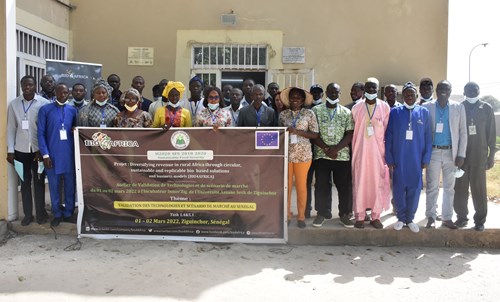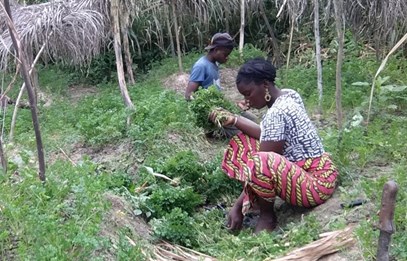Communities agree to go ahead with selected technologies

Four workshops have completed BIO4Africa’s exploratory phase, setting the scene for technology rollout
Workshops in each of the four BIO4Africa target countries have validated and agreed the bio-based technologies that will be implemented at the project test sites. However, as farmers and other workshop participants pointed out, there will be a continuing need to focus on local acceptance and awareness of the technologies’ environmental and economic impact.
Public-private partnerships, operator training at the processing plants and a ready availability of spare parts will also be key to sustaining the technologies over time.
Green light to proceed
The workshops were the final step in a series of initiatives to identify and assess the bio-based technologies and feedstocks with the best potential for success. Now complete, the workshops have given the BIO4Africa partners the green light to proceed with the project’s next phase – technology deployment at the test sites in Côte d’Ivoire, Ghana, Senegal and Uganda.
Cost-benefit analyses of all the proposed technologies have revealed a good business case in each of the four markets. The ultimate goal is to establish new revenue opportunities for smallholder farmers and support long-term food security.
Potential for economic impact
“Close to 80 survey interviews with farmer communities across the target region had provided the initial input about local needs. For each of the workshops, we had set an attendance goal of at least 15 stakeholders in the bio-based value chain, including agripreneurs, advisors, policy makers and other stakeholders,” says Millicent Sedi, agribusiness programme officer and gender focal point at AATF.
“Following a presentation of each of the technologies, all workshop participants agreed that the proposed bio-based technologies will spur economic impact in their area.”
When asked about infrastructure and the regulatory and policy environment, most participants considered local conditions to be favourable for sustaining the technologies in the long term.

Technologies for deployment
The following technologies will be deployed in each country:
|
Côte d’Ivoire |
|
|
Ghana |
|
|
Senegal |
|
|
Uganda |
|
See our technology catalogue for more information.